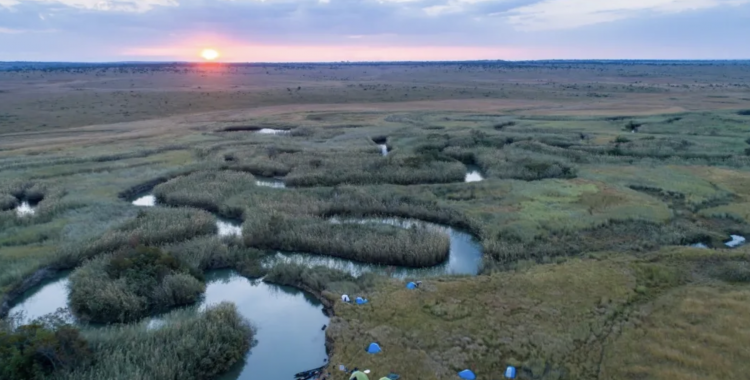Speaking to Lusa, the director for National Geographic's Okavango Wildlife Project in Angola, Kerllen da Silva Costa, said that the provinces of Moxico, Cuando-Cubango and Bié, southeast of Angola, contain the "Water Tower of the Southern Africa".
The "Water Tower of Southern Africa", explained the Angolan researcher, is a point where almost all the springs of all the rivers that supply water to southern Africa are located, "but the Angolan authorities are slow to value the water potential" .
Alluding to research carried out this year in the aforementioned provinces, Kerllen stated that the southeast zone was called the "Water Tower" because there is, in the province of Moxico, a perimeter of around 150 thousand square kilometers with sources of the rivers of the main hydrographic basins of Africa.
According to him, all the water in the Congo, Zambezi, Okavango, Kwanza and Cuando river basins originates at this point within Moxico.
"And this has implications for all the water that is used in Namibia, Zambia, the water that is in the Okavango Delta, which is a very large industry in itself, all comes from this point", he maintained.
Speaking on the sidelines of the III Environment and Development Conference, which addressed, in Luanda, "The Impact of the Sustainable Development Goals (SDGs) on Business", the researcher said that the authorities "do not have a complete idea" of the country's hydrographic potential.
For the National Geographic member, authorities' lack of knowledge of the potential of national water resources results from the approach that countries in the region take "by not recognizing that all their water comes from this place".
"I think we are in a key position where our Government has the opportunity to hold this as a very strong weapon at various economic, political and geostrategic levels", he highlighted.
Recognition of this region's dependence on water resources from Angola would place the country in a very important position in "guarding the joint preservation of water and regional economic development", he added.
Kerllen da Silva Costa, a graduate in natural resource management and biogeography and member of National Geographic expeditions in Angola, admitted that there is some "lethargy" on the part of the authorities in valuing this resource.
"Because maybe they don't look at it as a source of immediate income, but the impacts it has will last for generations", he argued, defending the Government's "anticipation" in approaching countries in the region that benefit from the "Water Tower".
The researcher also highlighted that the objective of the work he develops with National Geographic, such as river expeditions, is to collect scientific data to inform and guide the Government "on the importance of these springs in this region".







